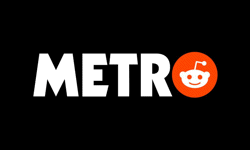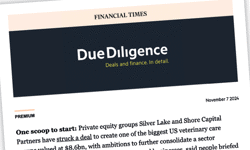Neil Benson, editorial director of Trinity Mirror’s regional newspapers, thought he was being creative when he suggested at the Society of Editors conference that newspapers could make money by going into the public relations business.
After all, the session he was appearing in was devoted to finding new platforms and new revenues and there had been plenty of evidence at the conference of the urgent need for both.
He was surprised by the “howls of derision” his idea encountered.
“The thing I found disappointing in a session that was supposed to be about prompting ideas about how we do things differently was the knee jerk reaction against it,” says Benson who, as a football referee in his spare time, is probably used to derision.
“A few people got wound up by someone with an editorial background saying we should get into PR. My point is, if there is a business in it - and I think there could be - then I think it’s worth looking at,” added Benson.
He was not, of course, suggesting that journalists should somehow be involved in a bit of PR on quiet news days, rather he is talking about the setting up of completely separate companies.
After all, many journalists move on to work in PR; why not, Benson muses, keep that expertise, and potential revenue, within the newspaper industry.
By chance, newspaper consultant Jim Chisholm had told the conference, in a different context, of the scale of the PR business in the UK. Revenues, from what he called “propaganda-PR,” were four times higher than the entire sum spent by all the media on journalism. There was even more money spent on market research than on advertising in the national press.
Benson has not been put off by the initial abuse and indeed has had several phone calls from “interested parties” which were much more positive about the idea.
“I think it is worth further investigation, so I will be exploring that along with a number of other things this year,” Benson promises.
“Maintaining editorial integrity would be absolutely crucial and it would be essential to have absolute separation between it and core operations,” the Trinity Mirror executive emphasised.
Regional experimentation
The likely investigation of the potential of PR for newspaper groups is just one example of a rash of experimentation across the newspaper industry.
Rupert Murdoch’s determination to charge for online copy and target the “kleptomaniacs” such as Google has attracted most of the headlines.
But the regional press with its hundreds of titles is even better placed to experiment than the national papers. In the regions, you don’t have to put your entire business on the line backing an idea that may not work. Instead, you can mount a variety of small local experiments in the search for keys that will unlock new revenues.
The experiments are up and running not just at Trinity Mirror, more publicly at Johnston Press and even more surprisingly at Tindle Newspapers. Until recently, Sir Ray Tindle was seen as a web sceptic, if not actually a web denier.
The burst of experimentation is being driven by the increasing realisation that although the advertising cycle will turn, the model that has served local and regional newspapers well for more than 100 years will never be quite the same again.
The search for new streams of revenue, whether from new business opportunities or charging for online content, is now seen as an urgent one.
Trinity Mirror initiatives
At Trinity, Benson has yet to be convinced that there are piles of gold to be made from online charging, although he is monitoring the situation carefully.
At the moment, his main effort is going into trying to develop new streams of revenue.
Apart from having a look at the business potential in PR, Benson has been experimenting with everything from the future of hyper-local publishing on the web to search engine optimisation (SEO) for external clients to specialist sports publishing.
“You just wouldn’t want to pick an idea and ram it into every title and find it’s a turkey, so we tend to pilot and try experiments on a localised basis,” says Benson.
Hyper-local websites - twenty of them - each covering an individual postcode in the Teesside area have been judged a success, though hard to commercialise. Money may come from what is being called local moles, associated local business directories.
“We are certainly looking to expand the hyper-local concept,” says Benson.
Local government could also be a decent source of new revenue. Trinity’s north-east paper, the Journal, is making annual six-figure revenues helping Northumberland County Council communicate via a hyper-local website.
Trinity Mirror also hopes to expand Sport Media in Liverpool, a publishing company which is “a distant arms-length” from the Liverpool Post and Echo. It publishes the Liverpool FC programme and LFC, the club’s weekly magazine.
Benson is also optimistic papers can take the search engine optimisation skills developed in newsrooms and package them up for small local companies and Trinity Mirror has bought a small specialist company, Rippleffect, to do just that.
Benson knows his papers and websites have content readers like and huge drivers of traffic such as local football, but he remains sceptical about charging.
“If we tried to charge for football, there are the fan websites. That’s the dilemma. We know we have content that is valuable but as soon as it is published, everyone lifts it anyway,” says Neil Benson.
At Johnston Press, chief executive John Fry has taken a completely different tack. The analysis was stark and clear. There was a great imbalance between the revenues earned on a paid-for title and those that came from a free website with largely similar content.
“The issue is that the revenue per consumer taking into account cover price, advertising, everything, is much lower on a website than in print, so encouraging people to move from print to online doesn’t make economic sense,” explains Fry.
So the Johnston executives scratched their heads and came up with the idea of experimenting on half-a-dozen sites out of the group’s 300 by introducing “paywalls” on papers such as the Northumberland Gazette, the Worksop Guardian, the Carrick Gazette and Southern Reporter.
Johnston will assess consumer reaction to different levels of charging and different proportions of freely available content.
“We see this as a start to a serious period of experimentation around payment mechanisms to make it easy for people to pay,” says Fry who believes the issue for most people is more about the difficulty of paying rather than the willingness to pay.
The initial round of experiments will last for at least three months but Johnston will not be publishing the results. They are for internal use only.
“It’s a genuine experiment which we have gone in to with an open mind and we don’t know the outcome which is why we are doing it,” Fry explained.
Another round of Johnston experiments is expected later this year in different parts of their newspaper empire which could include exploring the potential of iPhone “apps” for local news.
With iPhones, Fry added, you can buy an application for £2, click on something and it is just added to your bill.
In December, Trinity Mirror said it planned to launch apps for its national daily papers and websites.
The flexibility of the iPhone is just one example of how payment methods, even for local news, are likely to continue improving.
“There is a structural change which is very significant for our industry and not surprisingly people are reacting and trying to find the best routes towards a new model,” says Fry.
But shouldn’t you all have been doing this years ago?
“One looks forward,” replies the Johnston chief executive, expertly deflecting the question.
Tindle’s digital subs
Sir Ray Tindle appears to be the most unexpected experimenter, although the company’s drive towards the web has been the responsibility of group managing director Brian Doel.
“I think Sir Ray has accepted that the web is the future in some ways although he doesn’t believe it is the total future. He believes in the written word and printed paper,” Doel explained.
But Sir Ray has been pleasantly surprised by the online revenues coming from experiments on six titles: three frees and three paid-for newspapers. Tindle Newspapers has been using PageSuite software, and Paypal for payment collection.
Doel expected to get perhaps 20 or 30 online subscriptions, at the same cost as the cover price.
Instead, the response from a paid-for paper such as the Tavistock Times - circulation around 14,000 – has been subscriptions in the high hundreds.
One reader continues to buy the printed edition but has added an online subscription to get earlier access to the best bargains in the small ads.
Now Tindle Newspapers plans to extend charging for online subscriptions to all 41 of its paid-for titles.
Doel emphasises that circulations of Tindle’s largely small community newspapers are holding up well.
“But if over a period of generations, papers do start to move (to web only) then we can move with them. It’s an each-way bet for the future but we are still very committed to the printed word,” insists the Tindle managing director.
In recent weeks, Tindle’s Farnham Herald has been adding video to a number of stories and adding video ads paid for by local advertisers.
Recently they were able to show their efforts to shadow culture secretary Jeremy Hunt on the first day of the trial.
As for Sir Ray’s attitude to all this experimentation, Brian Doel says simply, “he has been very supportive indeed.”










